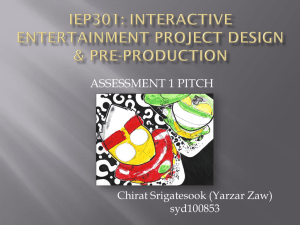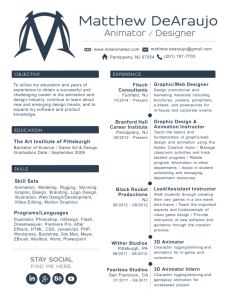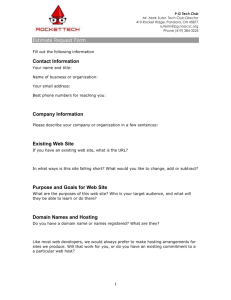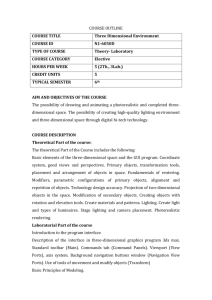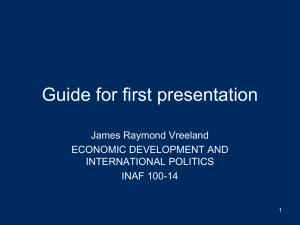Animation Lecture Worksheet (Word)
advertisement
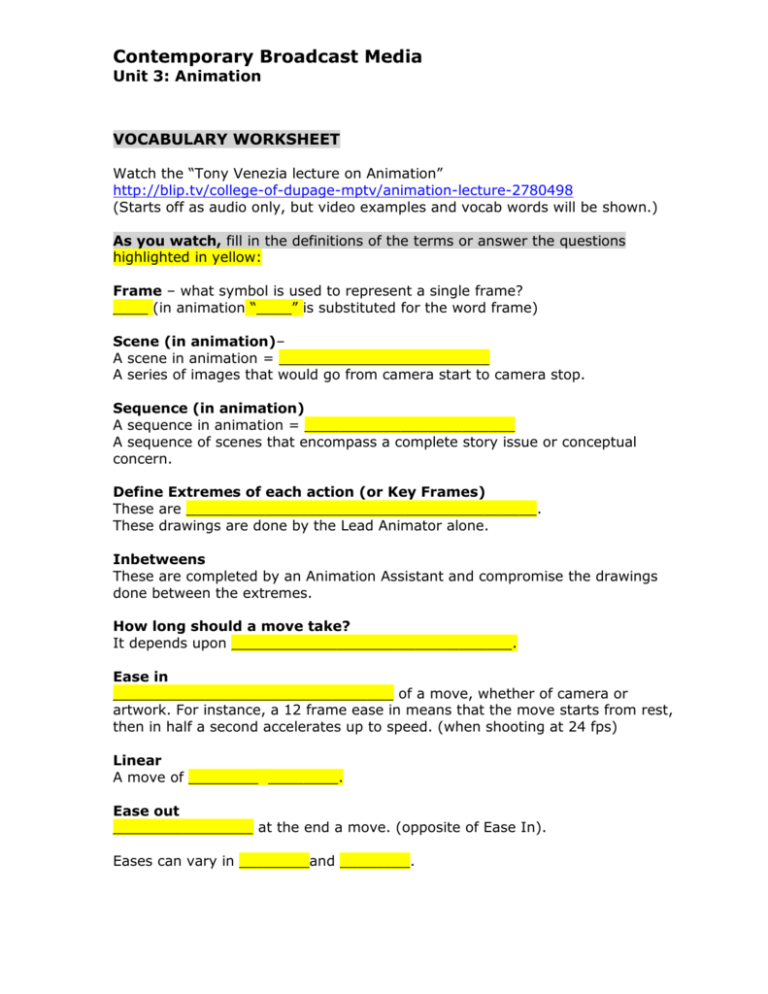
Contemporary Broadcast Media Unit 3: Animation VOCABULARY WORKSHEET Watch the “Tony Venezia lecture on Animation” http://blip.tv/college-of-dupage-mptv/animation-lecture-2780498 (Starts off as audio only, but video examples and vocab words will be shown.) As you watch, fill in the definitions of the terms or answer the questions highlighted in yellow: Frame – what symbol is used to represent a single frame? ____ (in animation “____” is substituted for the word frame) Scene (in animation)– A scene in animation = ________________________ A series of images that would go from camera start to camera stop. Sequence (in animation) A sequence in animation = ________________________ A sequence of scenes that encompass a complete story issue or conceptual concern. Define Extremes of each action (or Key Frames) These are ________________________________________. These drawings are done by the Lead Animator alone. Inbetweens These are completed by an Animation Assistant and compromise the drawings done between the extremes. How long should a move take? It depends upon ________________________________. Ease in ________________________________ of a move, whether of camera or artwork. For instance, a 12 frame ease in means that the move starts from rest, then in half a second accelerates up to speed. (when shooting at 24 fps) Linear A move of ________ ________. Ease out ________________ at the end a move. (opposite of Ease In). Eases can vary in ________and ________. Contemporary Broadcast Media Unit 3: Animation Timing (The backbone of animation.) It is the ________________ it takes to complete a move or scene. A move is a statement. An angry character will move very ________. A depressed character will move very ________. To figure out how long a move takes, you should _________________, and study yourself. Copy stand Vertical or horizontal stand for accurately positioning a camera when photographing flat materials. Field chart A guide printed on to acetate showing the dimensions of animation fields. Peg bars A three peg registration unit, the center peg is round and the two side pegs are rectangular. There are eight inches from center (peg) to center (peg) on long peg bars or pan cels. Pegs are based on either an Acme or Oxberry system; punched paper on one system will not work on the other system. Exposure sheets Long sheets of paper with grids where all the technical information needed to shoot the film is noted. Different studios will print their own or they can be purchased at an animation supply house. They are always done in pencil. Twos Each animation drawing or object position is held for ________ ________. We will shoot on Twos in this class. Holds When an action "freezes", that is remains the same for more than two frames, it is a hold. Layout The layout should show the placement of characters in a shot, the extremes of their actions, their scale relationships to one another and to the background. It is drawn to the same size as the final animation. If it is not too cluttered, indications of camera moves can also be put on the layout drawing, otherwise the camera moves are indicated on a similar looking but less busy separate camera guide Storyboards - the story of a production in pictures, together with dialogue and indications of framing, action, camera moves, transitions between shots, music, sound effects. Contemporary Broadcast Media Unit 3: Animation Historical Examples to View: A Trip to the Moon (1902) by George Melies www.youtube.com/watch?v=7Kpnbl3tn58 Fantasmagoire (1908) by Emil Cohl www.youtube.com/watch?v=aEAObel8yIE You Auto Lay an Egg (1930) by Charlie Bowers www.youtube.com/watch?v=m_caDhSWqaU Neighbors (1952) by Norman McLaren www.youtube.com/watch?v=Wh4DstK2w_Q Bambi Meets Godzilla (1969) by Marv Newland www.youtube.com/watch?v=ZpBkc2jK-6w


